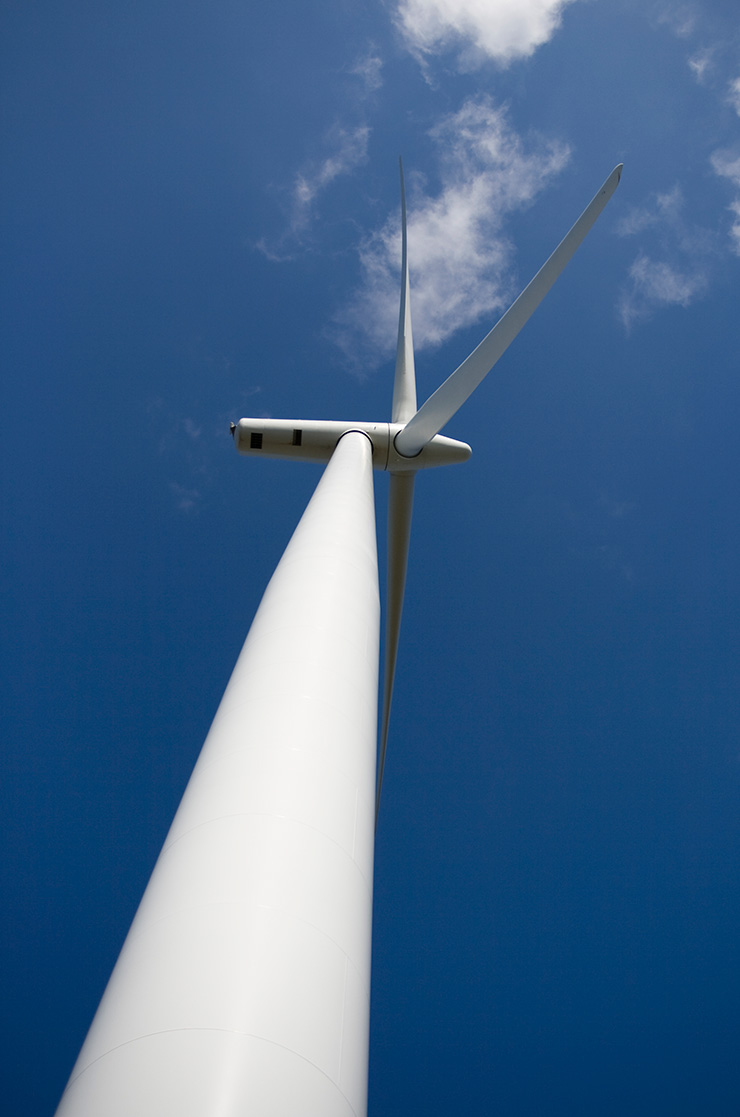Engineering is one of the most in-demand professions in Norway. From the traditional energy sector to digitalisation and green industry, engineers are essential to building the country's future.
With a population of just 5.5 million and countless infrastructure and energy projects underway, Norway faces a shortage of skilled professionals.

That’s why engineers from around the world—especially those with relevant qualifications and experience—have a strong chance of finding employment in Norway.
Engineering Disciplines in Demand
Norway’s demand for engineers spans nearly every discipline, from traditional energy production to cutting-edge digital innovation.
Whether it’s harnessing renewable energy, building tunnels through mountains, or developing autonomous maritime systems, engineers are at the forefront of it all.
Energy and Renewables
Norway is one of the world’s top energy exporters, and while jobs in the oil and gas sector still play a vital role, the country is transitioning rapidly toward a more sustainable energy mix.
This means engineers are needed not just to maintain existing infrastructure, but also to design and build the systems of the future.
In the oil and gas sector, petroleum and subsea engineers continue to be crucial to the operation and development of offshore fields. Mechanical, chemical, and process engineers are required to optimise systems and ensure safety and efficiency. Marine engineers support vessel and offshore platform systems in harsh Arctic conditions.
Hydropower remains the backbone of Norway’s electricity supply. Projects in this sector rely heavily on civil engineers for dam infrastructure, electrical engineers for control systems, and mechanical engineers to manage turbines and other physical components.
Many facilities are undergoing modernisation to increase efficiency and reduce environmental impact, creating steady demand for experienced professionals.
Offshore wind is Norway’s next major energy frontier. While still in the early stages compared to some neighbouring countries, several large-scale projects are in development.

Engineers with expertise in floating structures, marine environments, structural dynamics, and electrical systems are particularly sought after. Project engineers and risk analysts are also key players in these complex installations.
Carbon capture and storage (CCS) is another growing field. Norway is a pioneer in this space, with projects like Northern Lights drawing global attention.
Engineers working in CCS typically come from backgrounds in environmental, chemical, process, or geotechnical engineering and contribute to designing and scaling up CO₂ capture and underground storage solutions.
Infrastructure and Civil Engineering
Norway’s unique geography—with mountains, fjords, and remote communities—has led to some of the most ambitious infrastructure projects in Europe.
Civil and structural engineers are involved in the planning and construction of bridges, roads, tunnels, and urban transport systems. Current mega-projects, such as the E39 coastal highway upgrade and the Fornebubanen metro extension in Oslo, continue to create strong demand in this field.
Geotechnical engineers are essential in Norway due to the difficult terrain and the need to build stable foundations through rock and varied soil conditions. From slope reinforcement to foundation analysis, this expertise underpins virtually every infrastructure project in the country.
Construction engineers are needed on-site to oversee execution, manage subcontractors, and ensure projects remain on time and on budget. Their work is often linked to tight environmental and safety regulations, making local knowledge or relevant international experience particularly valuable.
Environmental engineers are playing an increasingly important role across infrastructure and industrial projects.
Their expertise ensures that developments comply with strict environmental standards, manage emissions, and minimise ecological impact—particularly important as Norway commits to greener, more sustainable growth.
Technology and Innovation
As Norway’s economy becomes more digitally focused, engineering roles in the tech sector are expanding rapidly.
The country has established a strong presence in microelectronics and embedded systems, with companies like Nordic Semiconductor, ARM Norway, and Microchip Technology leading the way.
Electronics and embedded engineers work on everything from wireless sensors to advanced chips for industrial and medical use. In the rapidly growing Internet of Things (IoT) and automation sectors, engineers with cross-disciplinary skills are in demand.
These roles often combine hardware and software expertise, with engineers working on smart sensors, robotics, industrial automation, and control systems. The rise of smart homes, energy-efficient buildings, and connected transport also contributes to job growth in this field.
Maritime technology is a unique strength for Norway. With deep roots in shipping and a strong focus on environmental innovation, engineers here are working on autonomous vessels, hybrid propulsion systems, and digital navigation tools.
If your background includes automation, AI, or marine control systems, this is an area with exciting opportunities.
Industrial and Manufacturing Engineering
Norway’s manufacturing sector may be smaller than in many other European countries, but it remains highly innovative—especially in industries like aquaculture, shipbuilding, pharmaceuticals, and green construction.

Project engineers are often the glue that holds cross-functional teams together. They oversee the planning, budgeting, and coordination of technical processes and ensure stakeholders are aligned. Many Norwegian firms look for project engineers with strong communication skills and international project experience.
Process engineers are key in production optimisation, particularly in industries like food processing, chemicals, and advanced materials. These roles often focus on efficiency, cost control, and adherence to environmental standards.
Finally, quality engineers and HSE (Health, Safety, and Environment) engineers ensure that systems meet stringent Norwegian and European safety and quality standards. Their role is especially vital in regulated sectors like offshore energy, manufacturing, and transportation.
What Types of Jobs Are Available?
Most engineering roles in Norway are tied to specific projects. As such, fixed-term contracts are common, particularly in construction, energy, and consultancy. These contracts can last from several months to several years, and often lead to further opportunities or permanent roles.
A common hiring model in Norway is through consulting firms. In this setup, you are employed by the consultancy but placed into client projects on a rotating basis. This can be a great way to gain local experience and grow your network quickly.
Permanent, full-time roles do exist—especially within large companies and the public sector—but employers often prefer candidates with local or Nordic experience. Starting on a temporary basis can help build that experience.
Where to Find Engineering Jobs in Norway
Here are some of the best places to search for jobs in Norway:
Major employers include Equinor, Aker Solutions, Statkraft, Norconsult, Multiconsult, AF Gruppen, Kongsberg Gruppen, and DNV. These companies typically list open positions on their websites, many in English.
Recruitment agencies include Experis Engineering, First Engineers, Jefferson Wells, Dovre Group, NES Fircroft, and Omega 365. Job portals to check include Finn.no, NAV.no, and Jobbnorge.no.
Salary Expectations for Engineers in Norway
Salaries in Norway are generally high by international standards, especially for early-career professionals. Tax rates are also relatively high, but these fund public healthcare, education, and social services.
- Entry-level (0–3 years): 475,000–600,000 NOK per year
- Mid-level (5–10 years): 650,000–850,000 NOK per year
- Senior-level (10+ years): 850,000–1,300,000+ NOK per year
Engineers working in the private sector often earn more than those in public sector roles, though public jobs may offer greater stability and work-life balance.
Trade Unions and Professional Organisations
Professional associations play an important role in Norway’s working culture, particularly for engineers and technologists.
Membership in trade unions and other professional organisations can be incredibly valuable—not just for collective bargaining and workplace rights, but also for career development, networking, and salary guidance.
NITO: The Norwegian Society of Engineers and Technologists
With more than 90,000 members, NITO is the largest organisation for engineers and technologists in Norway. It is open to anyone with a bachelor's degree (or higher) in engineering or related technical fields.
What NITO offers includes legal support for employment contracts and disputes, career services like CV reviews and interview coaching, access to salary statistics, discounted insurance and banking deals, and professional development through courses and networking events.
Tekna: Norwegian Society of Graduate Technical and Scientific Professionals
Tekna is the largest academic association in Norway for people with a Master’s degree or higher in engineering, science, or technology-related fields. With more than 100,000 members, Tekna represents highly educated professionals working across both public and private sectors.
Tekna offers its members salary negotiation support, legal help with employment issues, a wide range of courses and certifications, networking events through local chapters and specialist groups, and discounted membership options for students.
Do I Need to Speak Norwegian?
English is widely spoken in Norway, and some engineering roles—particularly in the tech sector or with international companies—use English as the official working language.
However, for most engineering positions, especially in construction, infrastructure, and the public sector, a working knowledge of Norwegian is either required or strongly preferred.
This is because technical documentation, regulations, and day-to-day communication on-site or with clients are often in Norwegian.
Even when English is the formal project language—such as on large-scale international projects—Norwegian is still likely to be used in informal meetings, emails, and workplace conversations.
Job advertisements usually state whether Norwegian is required or if English is acceptable. Roles that are open to international applicants will typically mention this clearly.
Still, even in these environments, learning Norwegian will significantly improve your ability to integrate, follow discussions, and build stronger relationships with Norwegian colleagues.
Can Foreigners Work as Engineers in Norway?
Yes, and many do. Norway actively recruits international talent in fields where there are skill shortages.
EEA citizens can live and work in Norway without a visa but must register with the police. Non-EEA citizens must apply for a skilled worker residence permit. This requires a formal job offer and evidence of relevant qualifications. More information can be found in our immigration guide.
Engineering is one of the most international professions in Norway, and demand remains strong across sectors.
Whether your background is in energy, infrastructure, digital systems or environmental sustainability, there are opportunities waiting here, especially if you’re open to learning the language and gaining local experience.


Hello my name is Hamidullah I am originally from Afghanistan and living in Turkey I did my Master degree as Geological engineer at Akdeniz University in Turkey, Now I am doing my PhD because of the economic problems I can’t continue my lessons I am seeking a job in my field this is my phone number +905061718198